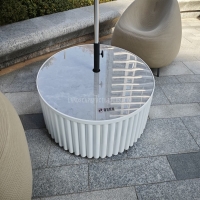Welcome to the website for landscape facilities products and knowledge.
What is the environmental impact of the bin’s materials and manufacturing process?
The environmental impact of bins depends largely on the materials used and the manufacturing processes involved. Traditional plastic bins, often made from petroleum-based polymers, contribute to resource depletion and greenhouse gas emissions during production. Additionally, improper disposal of these bins can lead to long-term pollution, as plastics take centuries to decompose.
Metal bins, such as those made from steel or aluminum, have a high carbon footprint due to energy-intensive mining and smelting processes. However, they are more durable and recyclable, reducing their long-term environmental impact.
Sustainable alternatives include bins made from recycled plastics, biodegradable materials like bamboo, or reclaimed wood. These options minimize resource extraction and often require less energy to produce. Manufacturers are also adopting greener practices, such as using renewable energy and reducing water usage in production.
To mitigate environmental harm, consumers should prioritize bins with eco-certifications, opt for durable designs to extend lifespan, and ensure proper recycling at end-of-life. Businesses and governments can further reduce impact by supporting circular economy initiatives and investing in low-emission manufacturing technologies.
Ultimately, the choice of bin materials and production methods plays a critical role in global sustainability efforts, influencing waste management systems and broader ecological health.
Related search:

Recommendation
Round metal tube border design table with tempered glass or granite countertop on the top.